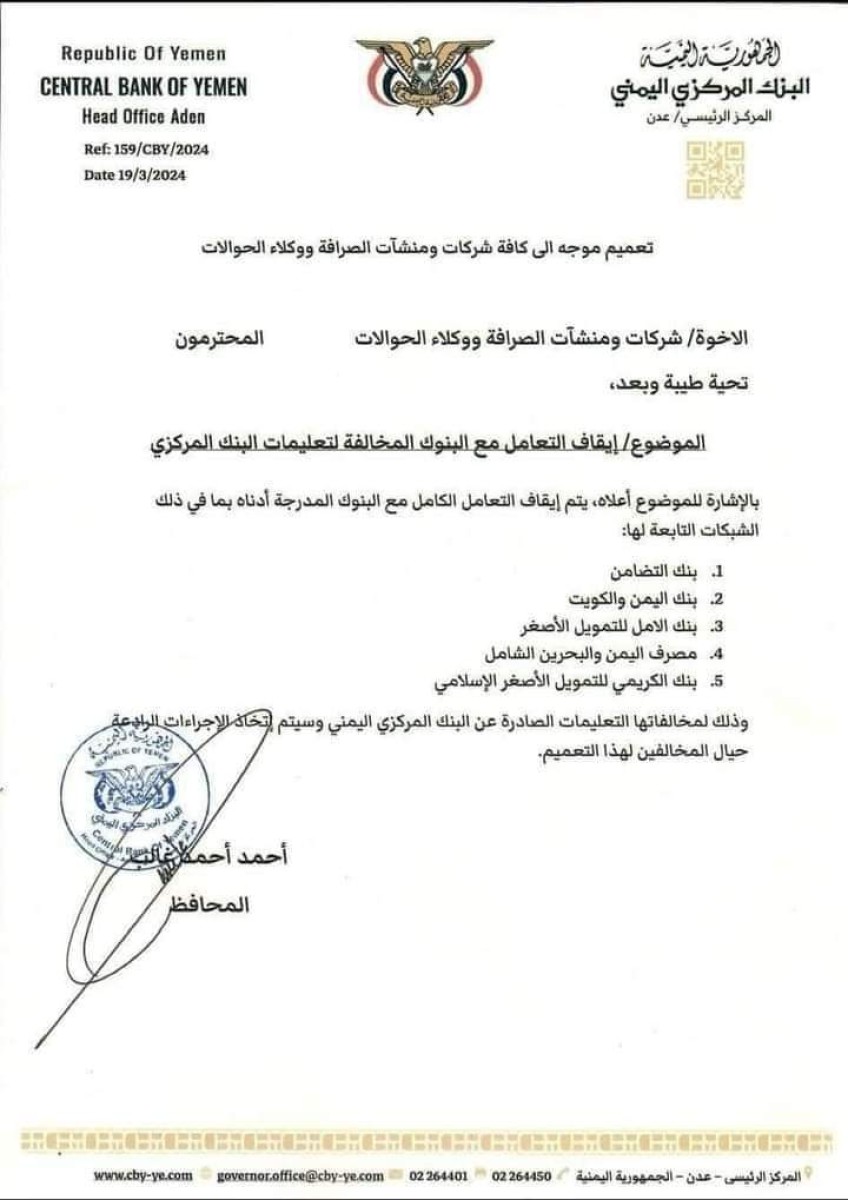The Central Bank of Yemen tightens its grip on violating banks, and the riyal continues to fall


The Central Bank of Yemen in Aden said on Wednesday that it had stopped dealing with banks and exchange companies that violated its instructions, including five of the largest banks and banking and financial institutions in the country.
The violating banks are Al-Tadamon, one of the largest commercial banks in Yemen, (Yemen and Kuwait), Al-Amal Microfinance, Shamil Bank of Yemen and Bahrain, and Al-Kuraimi Islamic Microfinance Bank.
The Central Bank also directed the suspension of dealing with 13 exchange companies in the Ma’rib Governorate in the northeast of the country on grounds of violating the instructions.
A senior official at the Central Bank in Aden confirmed to Reuters on Wednesday that the reasons for stopping dealing with the five banks and exchange companies in Ma’rib were their failure to comply with the bank’s instructions related to restricting money transfers to the unified money transfer network supervised by the bank in Aden, and the continuation of these facilities to deal with the networks. Transferring money to Houthi areas.
The official said that at the beginning of the week, the bank stopped money transfer operations through various exchange networks from the liberated areas in southern Yemen to the Houthi-controlled areas in the north.
He pointed out that stopping money transfer operations to Houthi areas came because the group allied with Iran prevented the networks of exchange companies in Sanaa from linking with the unified network for financial transfers affiliated with the Central Bank in Aden.
* The riyal continues to deteriorate
The action taken by the Central Bank comes at a time when the value of the Yemeni currency continued its sharp decline, reaching the lowest level ever against the dollar and foreign currencies in the city of Aden, where the price of the dollar approached the barrier of 1,700 riyals.
Money changers and dealers in Aden told Reuters that the exchange rate in parallel market transactions on Wednesday evening reached 1,658 riyals to the dollar for purchase and 1,670 for sale, after it was 1,640 for purchase and 1,690 for sale a week ago.
However, banking sources say that the exchange rates of the riyal in the capital, Sanaa, and the areas under the control of the Houthi group in northern Yemen are still stable at 530 riyals to the dollar.
There are two competing central banks, one of which is controlled by the internationally recognized government in Aden and the other to the Houthi group in Sanaa.
The conflict that has been ongoing in Yemen for nine years has caused a serious decline in the value of the Yemeni currency, a shortage of foreign reserves, and created what the United Nations calls the largest humanitarian crisis in the world.